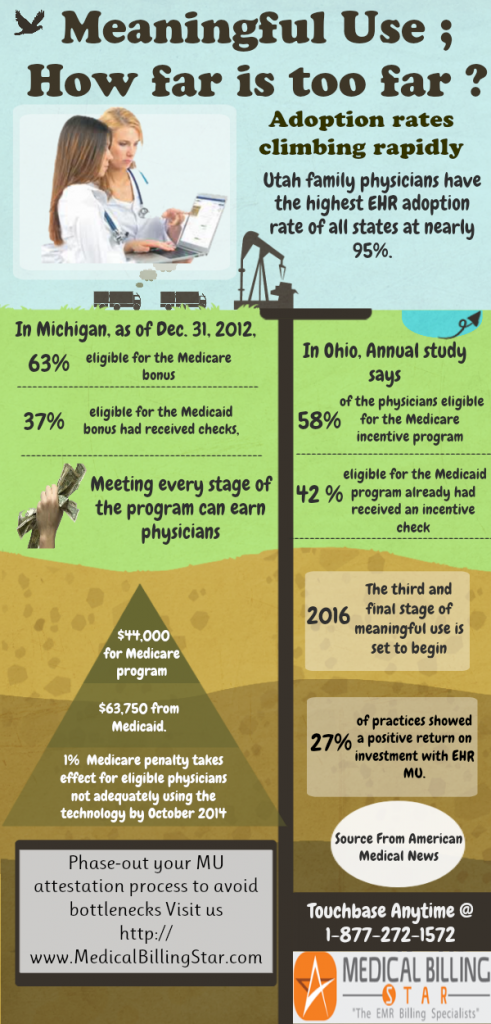Are physicians being rushed towards achieving MU ?
According to some strange law in the healthcare universe, there is always going to be someone complaining. EHR adoption rates are up. But before, you feel that doctors have finally made peace with their ehrs. Recent studies indicate that switching to an EHR can lead to loss of revenue.
Research Speak !
A recent study by the University of Michigan shows that only 27% of practices have showed a positive return on the money invested in their EHR. It cites rather alarmingly, that a physician loses $43,743 over 5 years after EHR adoption.
The research further reveals that the incentives for working with an EHR do help. But in a “very uneven way”
Rushing headlong into EHR adoption can be the reason…
The rapid pace of adopting EHR’s, in the pell-mell to receive incentives, is being blamed for the loss of revenue. EHR adoption rates are increasing at breakneck speed leaving no time for data collection to catch up. It paints a very unhealthy picture. In the race to ace the EHR game, patients it is feared, can be left in the lurch.
Can Stage 3 of Meaningful Use turn out to be a nightmare ?
This seems to be the shared fear of everyone, from the AMA Executive Vice President and CEO James L. Madara. To, the small practice owner, three blocks away. Stage Three MU has additional and stricter measures, for physicians to meet.
Inter-operability continues to be a key issue. With serious flaws in EHR systems and their architecture, MU can prove to be a disaster waiting to happen.
There is reason to chin up !
Though, loss of revenue due to EHR implementation continues to be a haunting dream. Physicians can take heart in the fact that focusing on their revenue cycle maximization that can reverse their fortunes.
The study by the University of Michigan on EHR use, has found that the major difference between practices that lost money, and those that didn’t. Was, how they used their EHR’s, to increase revenue.
Medical practices that, concentrated on patient care, improved their billing process and focused on reducing denied claims, saw a positive change. It is time for medical offices to not just concentrate on achieving MU but also think of ways to improve their billing cycle.
